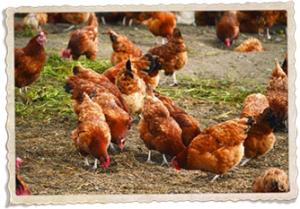When you first start raising backyard chickens, you’ll likely begin with a small flock of baby chicks. As adorable as these baby chicks may be, they require a lot of care and maintenance in order to grow into full-fledged adults. To do this, you need to be well-prepared for your chicks in the weeks prior to their delivery. Here’s where you should start:
Set up the Brooder
The healthiest chicks come from the healthiest environment. This means setting up your brooder properly so that your chicks can flourish between now and when they enter the coop. A brooder is absolutely necessary when raising baby chicks to ensure their comfort and safety. It should be large enough to hold all of your chicks (ensuring that they each have enough space to spread out) in addition to their food, water, and heat lamp. The brooder should also be kept dry and out of drafts.
Prepare the Bedding
Bedding needs to be kept dry and clean for your chicks. Pine wood shavings are the best kind of bedding, as they’re cheap, easy to find, and also easy to clean. Your chicks will poop a lot, so the cleanliness of their bedding will be a huge factor in their overall health. Even with pine wood shavings, though, you’ll still need to clean their bedding once per day.
Heat the Brooder
Baby chicks cannot regulate their own temperature. As a result, we need to do it for them using a heat lamp that is properly installed inside the brooder. The temperature of the brooder should be set to 98 degrees Fahrenheit during the first week after your chicks arrive. From then on, decrease the temperature by 5 degrees each week until you reach 70 degrees Fahrenheit. For a more in-depth look at how to heat your brooder, read over our blog post on the topic here.
Provide Water
Chicks need clean, fresh water every day just like other animals. However, chicks can be rather clumsy. They can tip over waterers, fall inside of one, and even poop in one. Find a waterer that is sturdy and can withstand a bit of abuse from the chicks. Then, set it up so that it’s elevated a few inches from the ground. This should prevent chicks from falling inside or pooping in the waterer, while still allowing them to drink easily from it. You can also put pebbles inside the waterer so that if a chick does fall inside, they won’t drown. Once you have everything set up, change out the water at least once a day to ensure it’s clean and fresh.
And Provide Feed
You can’t give your chicks the same feed as you would give adult chickens. Instead, chicks need chick starter—a special kind of feed that is formulated to help chicks grow and develop. Once you have the feed, you can get either a gravity feeder or a trough feeder to place it in. Chicks have a voracious appetite, so be sure there is feed available for your chicks 24/7.
Have a First Aid Kit
If this is your very first flock, then you should set up a first aid kit in the off chance that any of your chicks become sick or injured. This first aid kit can continue to be used once they’re grown, so don’t throw it out once your chicks become adults. Your chicken first aid kit should contain the following:
- Pet carrier
- A small coop for birds that need to be isolated
- Disposable gloves
- Clean towels
- Q-tips for cleaning
- Small pair of scissors for matted feathers
- Bandaids
- Droppers for chicks that won’t eat or drink
- Dog nail clippers and files
- Chicken saddle
- Non-stick gauze pads for wounds
- Antibiotic ointment
- Electrolyte solution
To learn more about how to prepare and care for your new baby chicks, contact Chickens for Backyards today!

